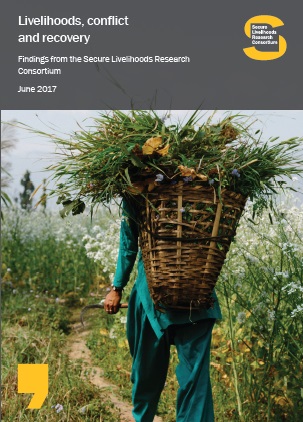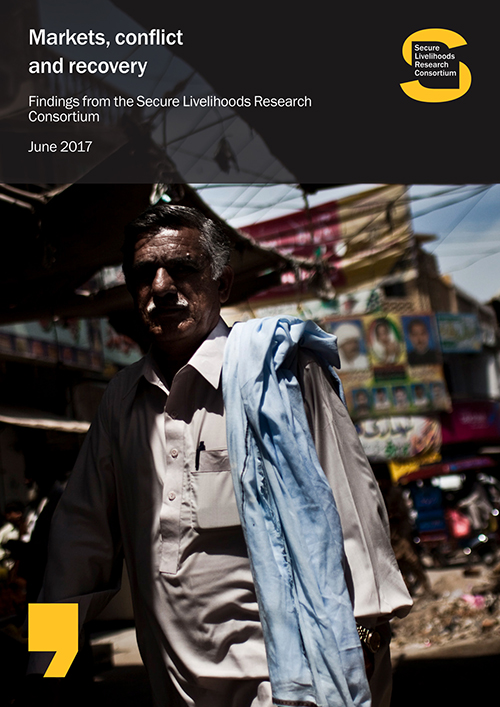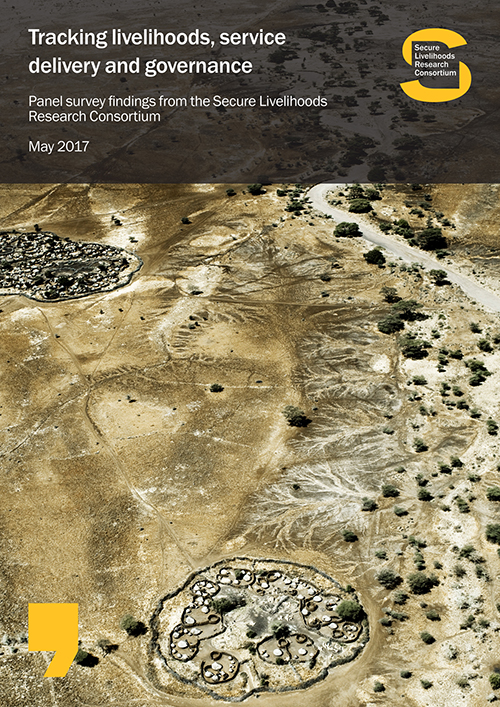The research in SLRC Phase I (2011-2017) explored questions on state legitimacy, state capacity, and livelihoods trajectories. This phase culminated in the production of five synthesis reports (published in June 2017) that pull together the key findings from the previous six years of research in the eight target countries.

Findings from the first phase: 2011 – 2017
Our findings are further synthesised in two briefing papers, providing an overview of the first two rounds of the SLRC’s panel survey (2012, 2015), along with key lessons for policy-makers and practitioners working to support state building, service delivery and recovery in fragile and conflict-affected situations. SLRC suggests five ways policy-makers and practitioners can better support state building, service delivery and recovery in fragile and conflict-affected situations:
Livelihood recovery is neither automatic nor linear after conflict
- Assume a long and non-linear trajectory for the recovery of livelihoods and wellbeing.
- Turbulent livelihoods reinforce the need to avoid blueprint, ‘best-practice’ programming and pay closer attention to context.
- Think carefully about how – and whether – to target support.
It is the ‘how’ that matters when it comes to the question of whether service delivery can enhance state legitimacy
- Recognise that achieving state legitimacy is only a secondary objective of service delivery.
- Prioritise service delivery for its own sake.
- Do not assume that nongovernment provision undermines state legitimacy.
- Take a ‘do no harm’ approach to service-delivery programming.
- Pay more attention to the quality of services, including strong systems for ensuring accountability
Grievances, unfairness and exclusion – both within arenas of service delivery and the workplace – are enduring issues and must be taken seriously
- Avoid the carelessly-applied notion of post-conflict settings as a relatively ‘blank slate’, in which old grievances have evaporated and any new service is bound to be viewed positively.
- Achieving fairness and addressing grievances associated with jobs and markets requires a response beyond the usual toolbox of skills training, access to credit and infrastructure investments.
State-building is fundamentally about how individuals and organisations relate to each other
- Start from an understanding of how people use services in practice and what this means for how they experience the state.
- Focus on what would need to change for services to be more effectively delivered.
- Start thinking about service delivery programming less in terms of tangible assets and structures and more in terms of the relationships and behaviours through which people experience service delivery.
Supporting state-building, service delivery and recovery means engaging with power and politics beyond government alone
- Invest in better, more localised understandings of how power and politics shape state-building, service delivery and recovery.
- Adopt a multidimensional perspective on power and regulation.
- Focus on structural constraints, not just individual skills and capacities.







